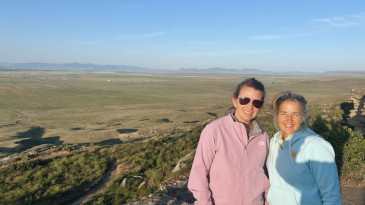Aug 11, 2025
By Border Queen Harvest Hub
The recent Kansas Food Summit, held at Kansas Wesleyan University in Salina, brought together farmers, food system leaders, educators, and innovators from across the state. It was a powerful opportunity to learn, connect, and collaborate on the future of food in Kansas. Here's a quick recap of the key sessions we attended:
1. Farm to Plate Specialty Crop Networking Workshop
Hosted by the Kansas State Department of Education’s Child Nutrition and Wellness team, this workshop brought together organizations like Kansas Farm Bureau/Shop Kansas Farms, Kansas Rural Center, KC Food Hub, and the Specialty Crop Growers Association. The goal? To increase regional access to specialty crops in schools by building relationships between producers and buyers.
Interested in selling to schools? There are incentives available, making this a great time to explore those opportunities.
2. Beyond the Scarcity Mindset: Growing Farmer-to-Farmer Communities
Led by the Kansas Rural Center and the Central Kansas Food Corridor (CKFC), this session focused on collaboration over competition. Farmers, businesses, and support organizations gathered to explore how working together—across geographical and funding boundaries—can strengthen the entire local food system.
The takeaway: We are stronger together, and it’s time to step outside our silos.
3. Salt and Light Homestead Tour
This hands-on farm tour gave us a close look at Salt & Light Homestead, a family-run farm focused on high-quality, natural foods. Their open-door policy fosters community trust, and the tour showcased their high tunnels, pastured poultry and livestock, and direct-to-consumer marketing strategies. A great example of transparency and community engagement.
4. Conversation with a Mid-Scale Specialty Crop Farmer
Scott Thellman, owner of Juniper Hill Farms and Pine’s Garden Market, shared the story of growing a diversified mid-scale farm. He spoke candidly about navigating urban agriculture, labor challenges, zoning and taxation, and developing food markets in underserved areas. His experience proves that farm growth is possible with innovation and persistence.
5. The Recipe for Success: Building Thriving Food Ventures in Incubator Kitchens
Diane Kriwiel, founder of The Shared Kitchen, offered insights into how incubator kitchens can spark food business development. From statewide models to local lessons, this session provided a roadmap for how communities can support entrepreneurs in turning culinary passions into sustainable food ventures.
Final Thoughts:
The Food Summit was a reminder of how much potential exists in Kansas' food system. Whether it's connecting schools to local farmers, supporting incubator kitchens, or breaking down barriers between producers, there’s momentum building—and the Border Queen Harvest Hub is proud to be part of it.

